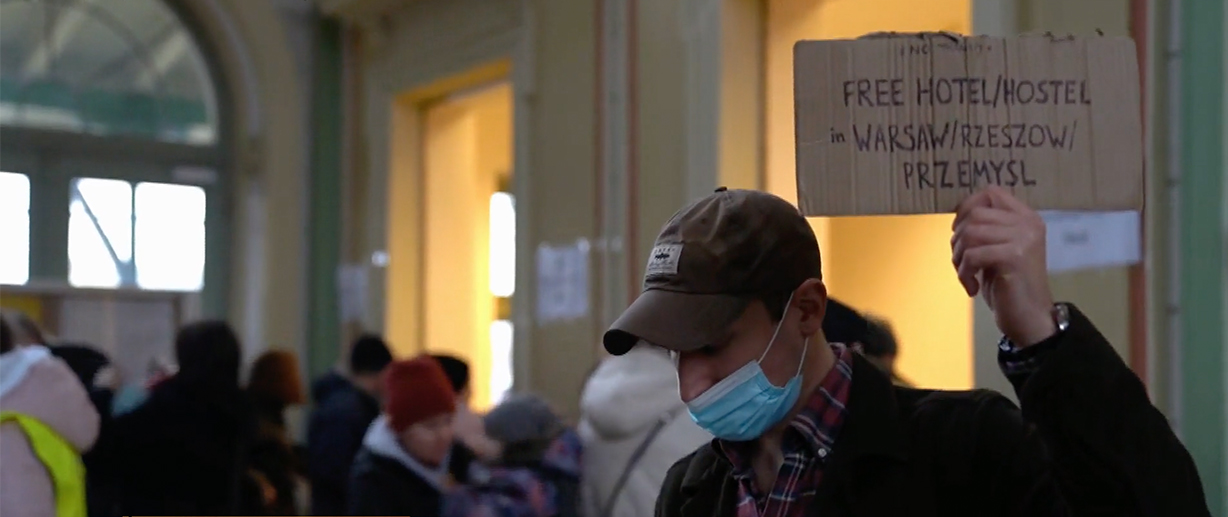By Robert W. Dalton
U.S. Army Capt. Sabastian Conour ’13 journeyed to Poland in February to see the scars of a war long past and came face to face with the open wounds of a new conflict.
When Russia launched its invasion of Ukraine, Conour ran toward the battle. That’s what soldiers do.
Conour was in the middle of his leave, visiting the sites of World War II Nazi death camps when the invasion began. When he learned of Ukrainian refugees streaming into Poland, Conour headed for towns on the border. He didn’t know what he would do when he got there, but he knew he couldn’t just be a tourist any longer.
“I couldn’t see all these remnants of the horrors of the Holocaust and not do something,” Conour says. “It just happens that I was in the right place at the right time.”
Conour arrived at the train station in Przemysl with two large bags of supplies. But supplies were not an issue, he says, as residents lined the streets with carloads of food and clothing. The biggest need was shelter.
“Once I got there I could see there were so many people and no place to house them,” Conour says. “There were so many and it was so cold outside. There were a couple of local places they were putting people in, but not enough.”
Most of the people crossing the border were women and children. Conour decided the best way for him to help was to provide safe places for them to stay, where they could get a shower and sleep in a warm bed, and began booking hotel rooms.
He used his own money in the beginning, but put up a GoFundMe page so he could help even more refugees. Donations poured in, reaching about $13,000 before he shut it down. Conour says about 25 percent of the donations came from members of the Wofford community.
Conour is now back on active duty and is stationed in Kuwait. Some money remains, and he’s working from afar to book rooms for the most vulnerable. He also hopes to provide short-term housing for at-risk families while they try to find work and rebuild their lives. He says if he can’t make that work, he’ll donate any remaining funds to the World Central Kitchen, which has been providing warm meals for refugees since the invasion began.
Conour says at last count he had provided shelter for 270 people. “A drop in the bucket,” he says.
One, in particular, is locked in his memory, a reminder of the human cost of war.
Conour’s own lodging was a 90-minute train ride away from Przemysl. Some nights he would miss the last train out and would be stuck in the city. On one of those nights, he slept outside of a room he had secured for a refugee family.
The next morning, he awoke to the sounds of the family packing, getting ready for whatever was coming next. And then he heard something that he says will stay with him no matter where he goes.
A young girl sobbing, trying to process the madness of war that drove her from her home.
“It’s just so incredibly sad,” Conour says. “I think about that girl a lot. What she lost, she will never get back.”
Watch a CBS News story where Conour was interviewed while greeting people fleeing from Ukraine.
